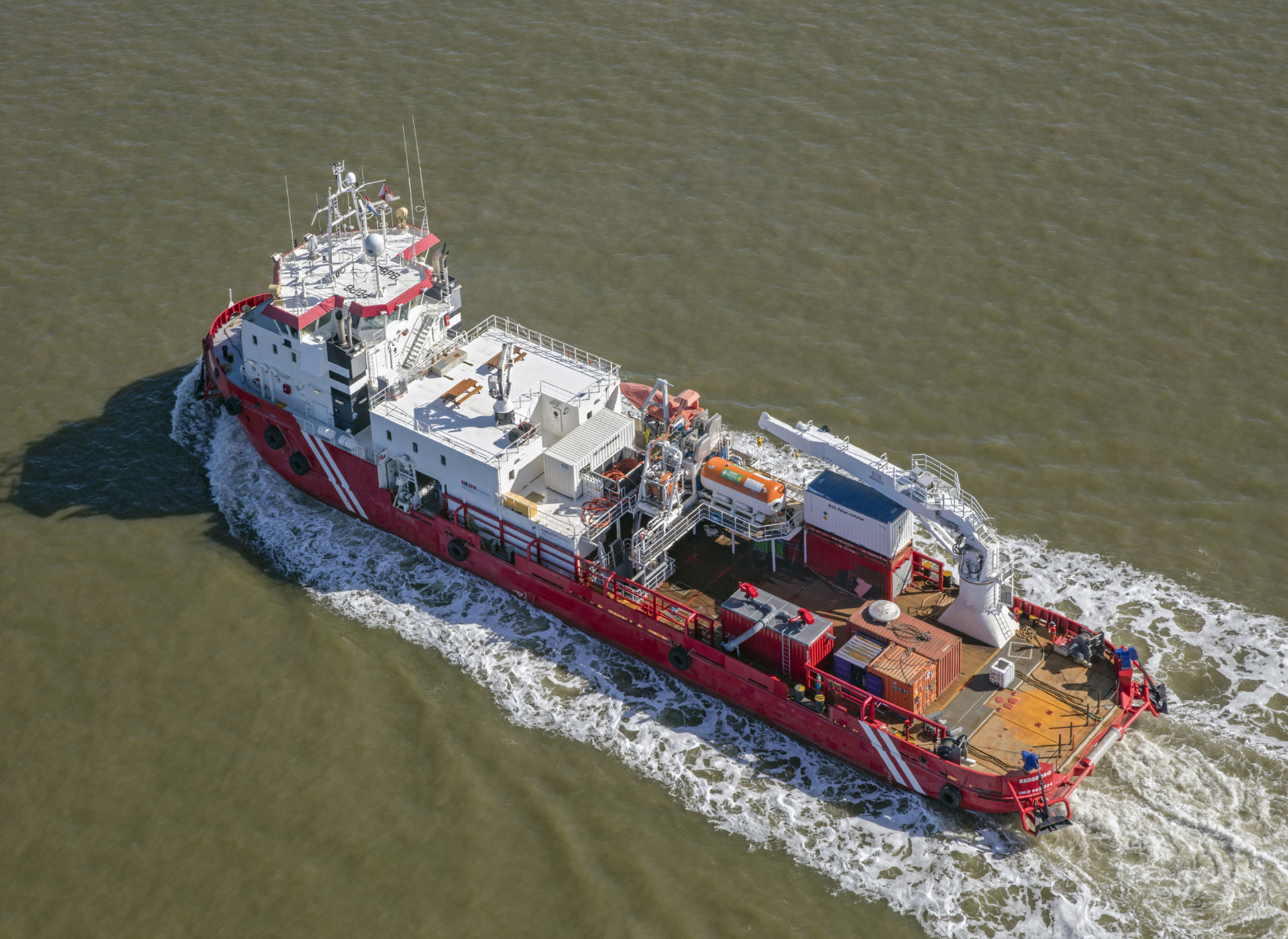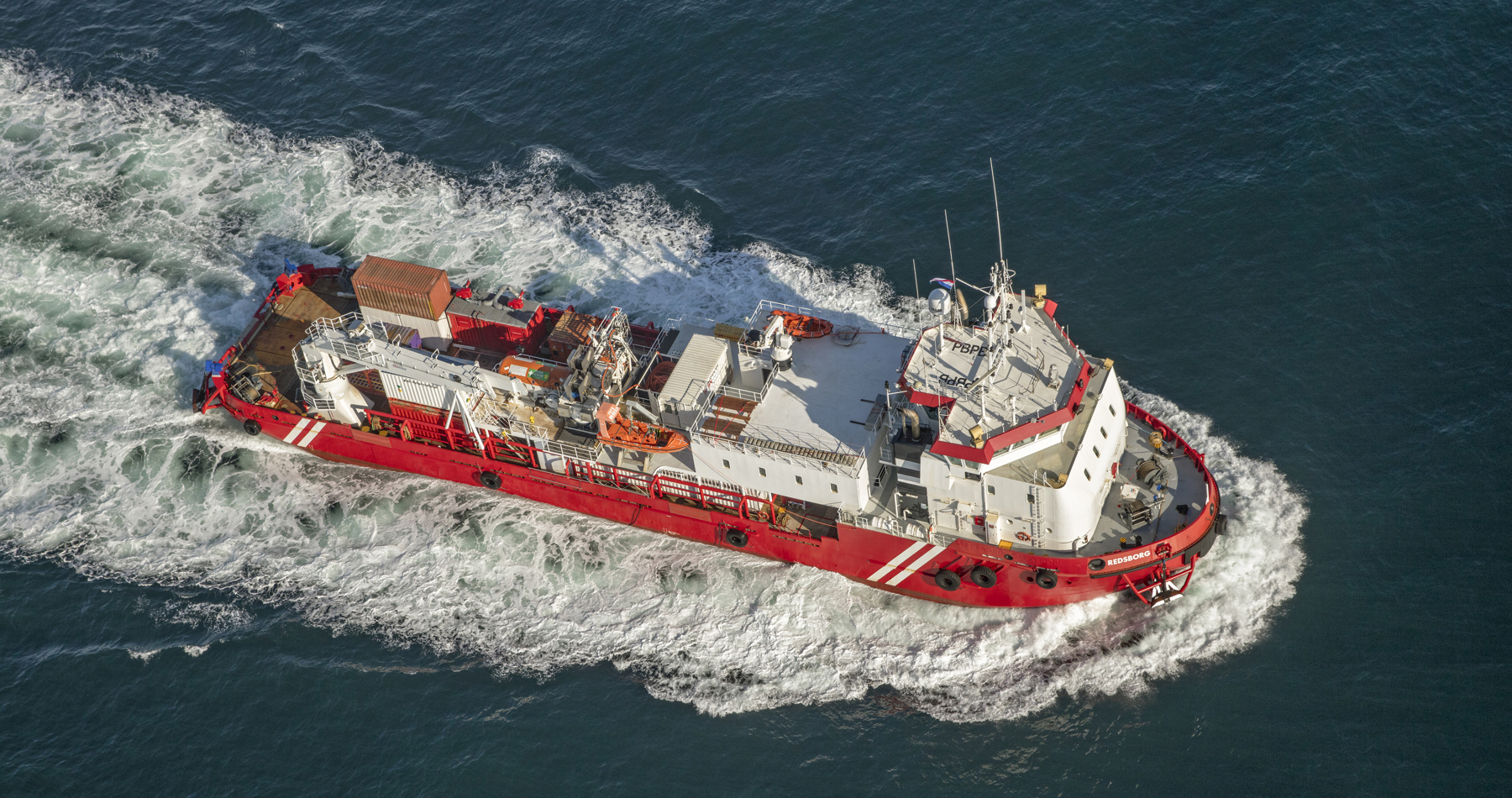
Conversion icebreaker 'SERKEBORG' into diving support vessel
The offshore support vessel Serkeborg, sailing in the Wagenborg Offshore fleet, will play a crucial role during subsea diving- and maintenance work at an oil terminal. For this long term contract, Wagenborg Offshore commissioned Royal Niestern Sander to convert Serkeborg into a so called diving support vessel. At the yard, Marc van Dijk gives an insight into this project.
Key figures
22 weeks
2,50 meters draught
12 additional accommodations
2 additional bow thrusters
Back in action
It’s busy as ever at the yard in Farmsum: a floating crane is positioning the accommodation on the aft deck, welders and ironworkers walk back and forth and hundreds of meters of cable are ready to be installed on board. Marc van Dijk is managing the operational part of this conversion. “More than four years ago, this ship was also here, on the opposite side” Marc points across the water. “The new building department built Serkeborg and her sister Sanaborg for Wagenborg Offshore. “These are really special purpose vessels”.
Wagenborg Offshore built both multipurpose offshore support/supply vessels for the shallow Caspian Sea with oil activities in that area in mind. These specially built ice breakers have an extremely low draught of 2,50 metres. The main measurements are 68,20 by 14,30 metres and the accommodation originally offered space for 12 people. Since the oil crisis, resulting in less work, both vessels have never really been deployed in the region they were built for. “Luckily Wagenborg has found a new destination for Serkeborg and because of this she will undergo a substantial metamorphosis” says Marc.
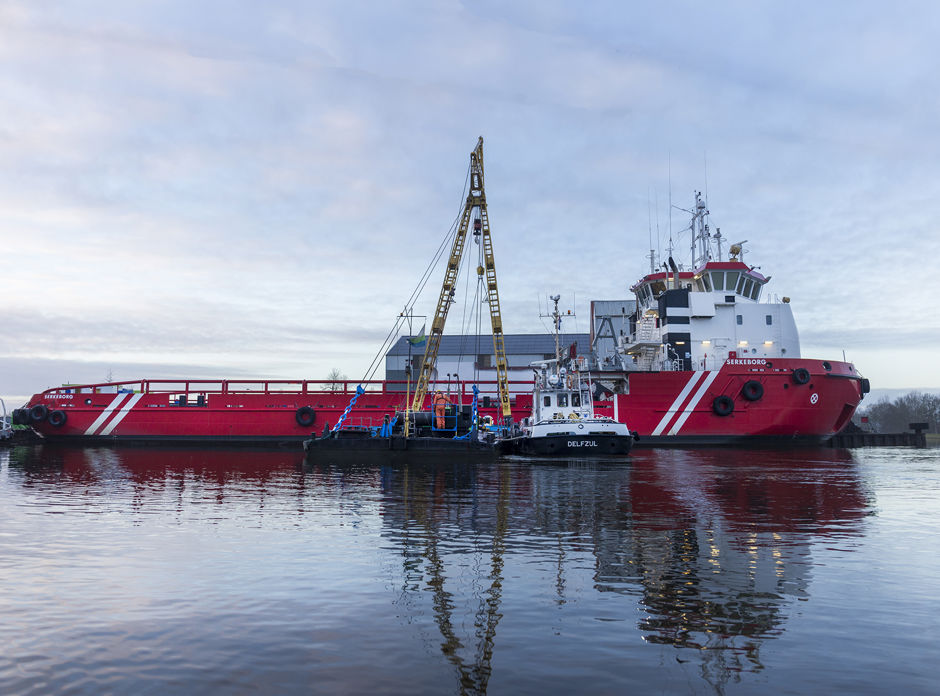
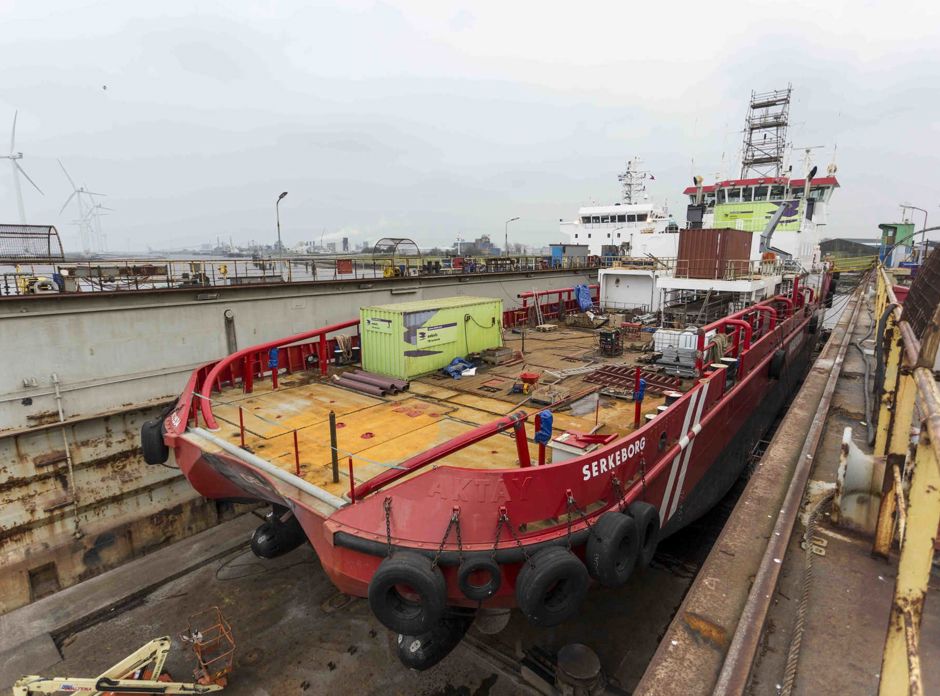
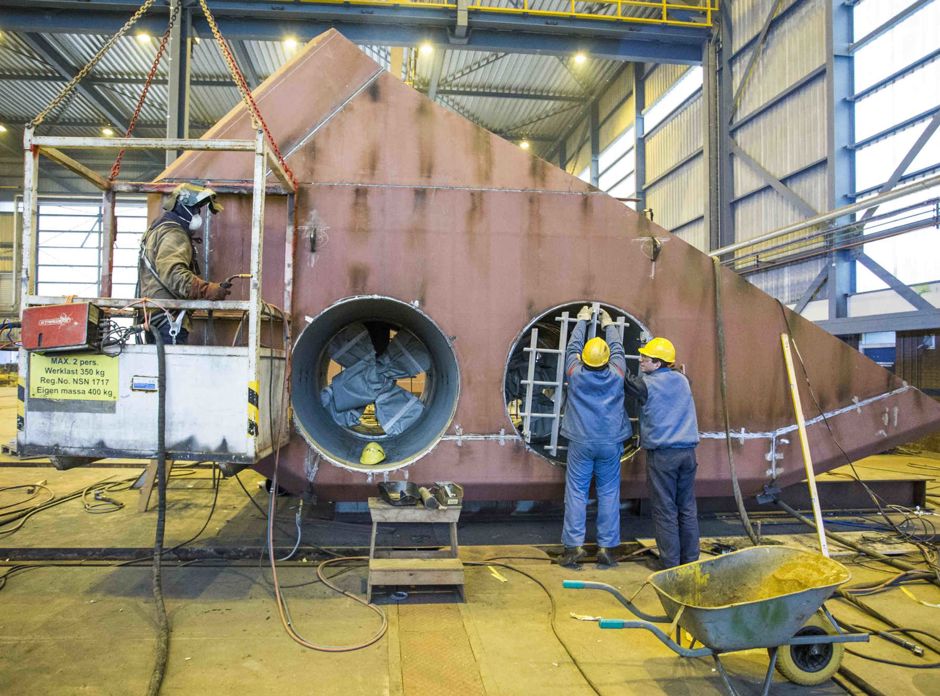
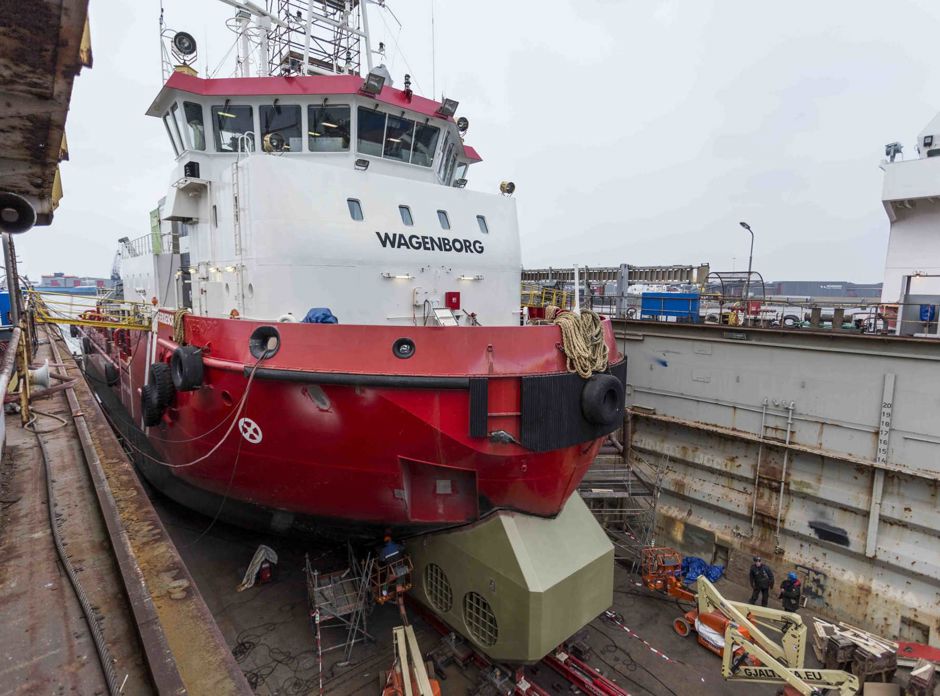
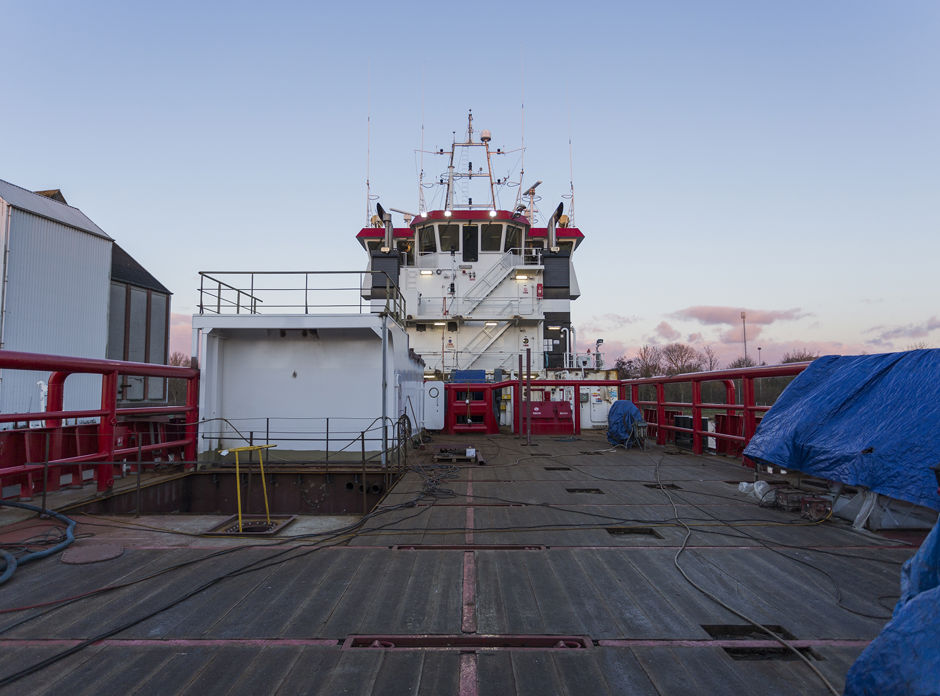
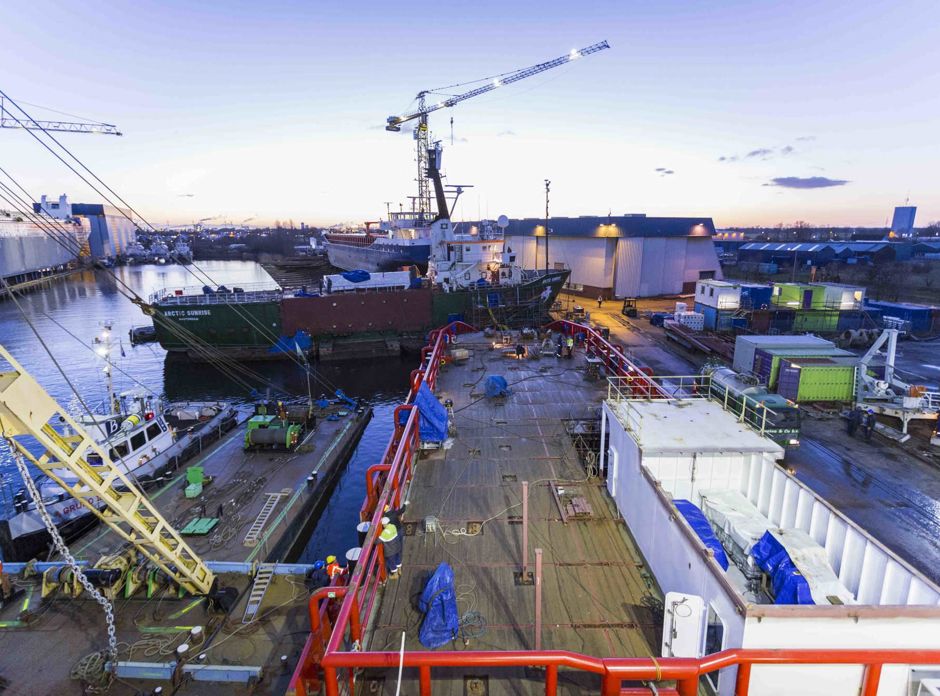
Metamorphosis
In December, Serkeborg came back from Harlingen to the yard in Farmsum to be converted into a diving support vessel. The entire conversion will take approximately 22 weeks. Project manager Marc van Dijk continues: “A large number of cosmetic changes will be visible. An extra accommodation unit will be added, ensuring 24 people can stay on board. Furthermore, a fire fighting unit, a four point mooring system and a heavy crane will be installed on the aft deck."
Decompression chamber and moon pool
Serkeborg will play a large role in subsea maintenance- and diving work. This is the reason why she will be equipped with functionalities to facilitate this. For instance a decompression chamber and a so called moon pool. “A moon pool is an opening in the hull of the ship through which divers can easily exit the vessel and do their work under water. It is of importance that the vessel stays perfectly in position. This is the reason why Serkeborg will be upgraded to a DP2 vessel” Marc van Dijk explains.
